| S.No. | Name | Specialization | Designation | Photo |
|---|---|---|---|---|
| 1 |
Dr. Ragini Shukla
raginishukla008@gmail.com |
VB.Net, SQL Server , Java Script | Dean, Assistant Professor |
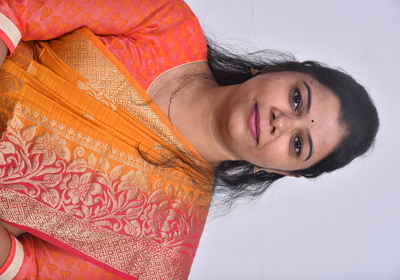
|
| 2 |
Mr. Abhinav Shukla abhinavshukla@cvru.ac.in |
Operating System, Computer Network | HOD, Assistant Professor |
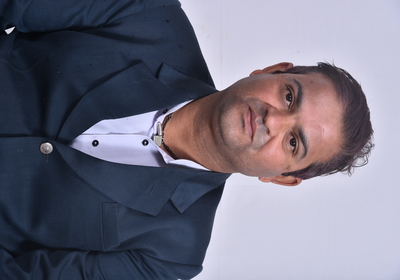
|
| 3 |
Dr. Neelam Sahu neelamsahu16@gmail.com |
C++, Data Structure | Associate Professor |
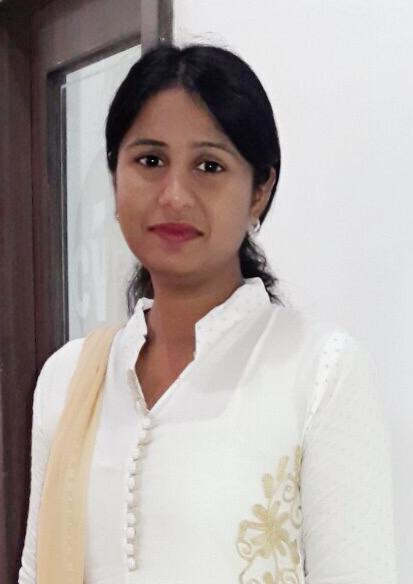
|
| 4 |
Mr. Suraj Keshari suraj.softtech11@gmail.com |
Digital Electronics, Logic Design, Discrete Mathematics | Assistant Professor |
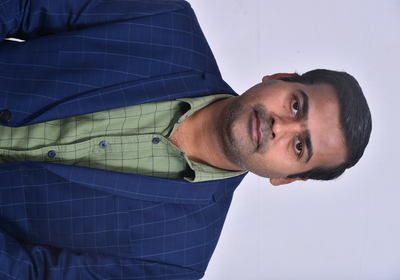
|
| 5 |
Mr. Vikash Pandey vchpsite@gmail.com |
C,C++,Java,Fundamental | Assistant Professor |
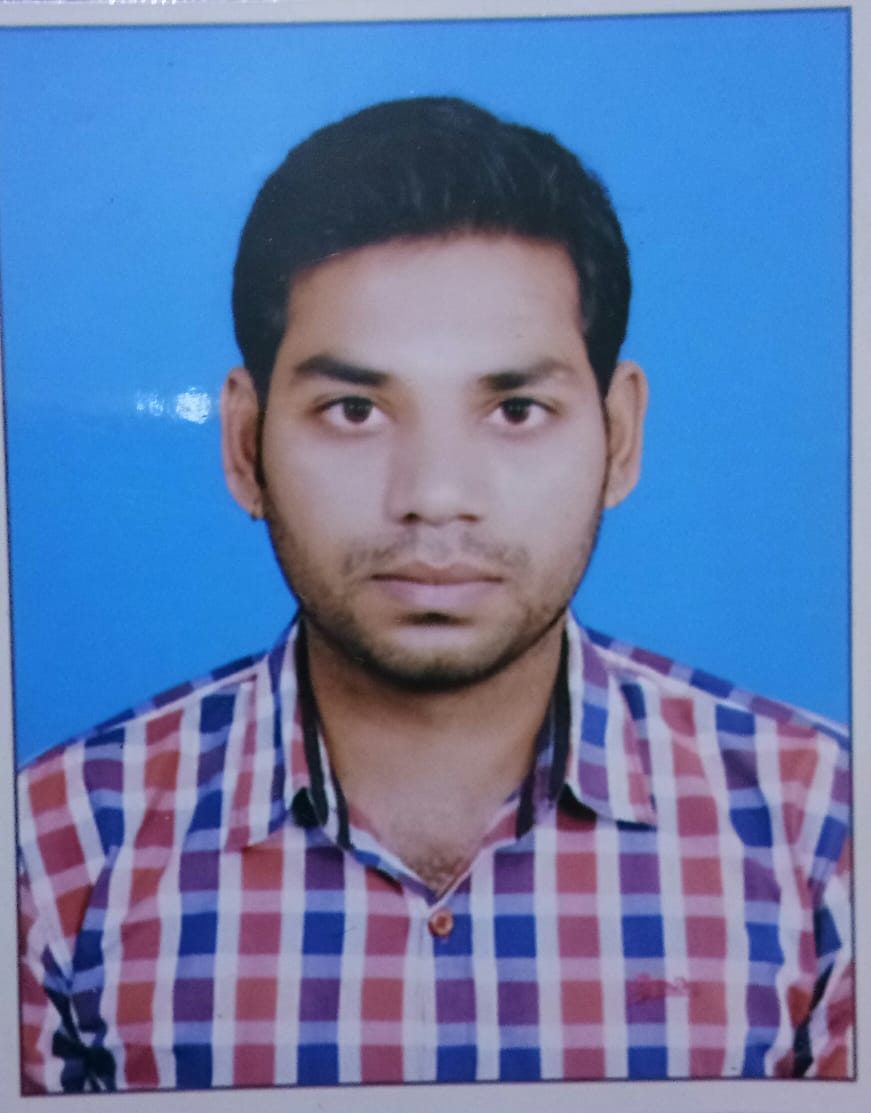
|
| 6 |
Mr. Jitendra Gupta jkgupta.cvru@gmail.com |
Fundamental, IT Trends, MS Office | Assistant Professor |
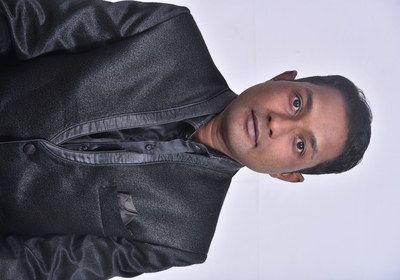
|
| 7 |
Mr. Rahul Pandey ravi.care18@gmail.com |
C++, Operating System, Data Mining | Assistant Professor |
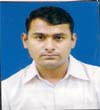
|
| 8 |
Mr. V. Anurag Rao v.anurag.rao85@gmail.com |
C,VB.Net, Java | Assistant Professor |
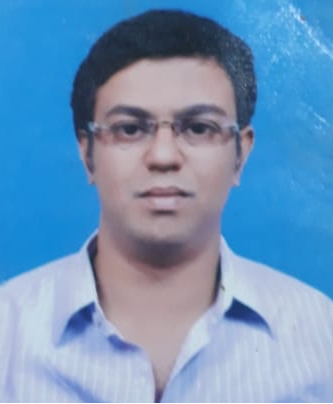
|
| 9 |
Mr. Vivekanad Verma prakash.1347@gmail.com |
Fundamental, Network, Internet Programming | Assistant Professor |
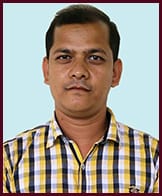
|
| 10 |
Mr. Ayaz Ahmad ayazahmad.faridi@gmail.com |
DTP. Photoshop, Pagemaker | Assistant Professor |
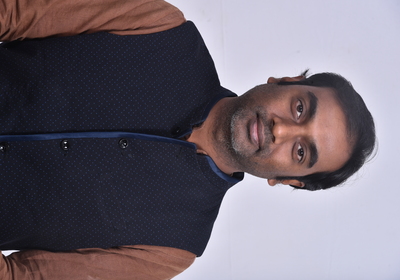
|
| 11 |
Mr. Bisahu ram Sahu bisahu.sahu@gmail.com |
VB.Net, PC Package | Assistant Professor |
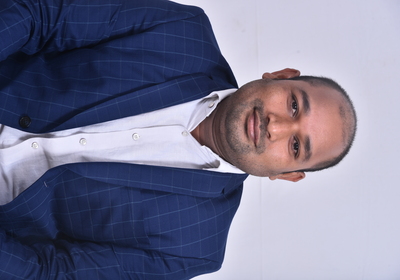
|
| 12 |
Mr. Ayush Kumar Agrawal ayushagrawal369@gmail.com |
C,C++, Java, DBMD & SQL | Assistant Professor |
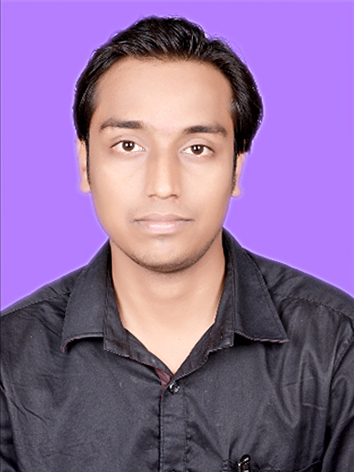
|
| 13 |
Dr. Vineet Kumar Awashi vineet99kumar@gmail.com |
Optimization Techniques | Assistant Professor |
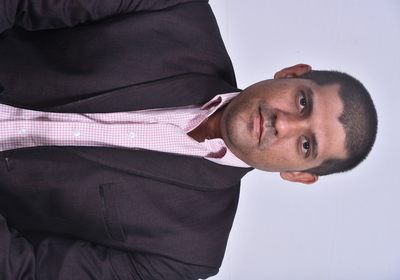
|
| 14 |
Mr. Somesh Mishra mishra.somesh@gmail.com |
Linux, Operating System, Computer Networks,Computer Graphics, 2D & 3D Animation | Assistant Professor |
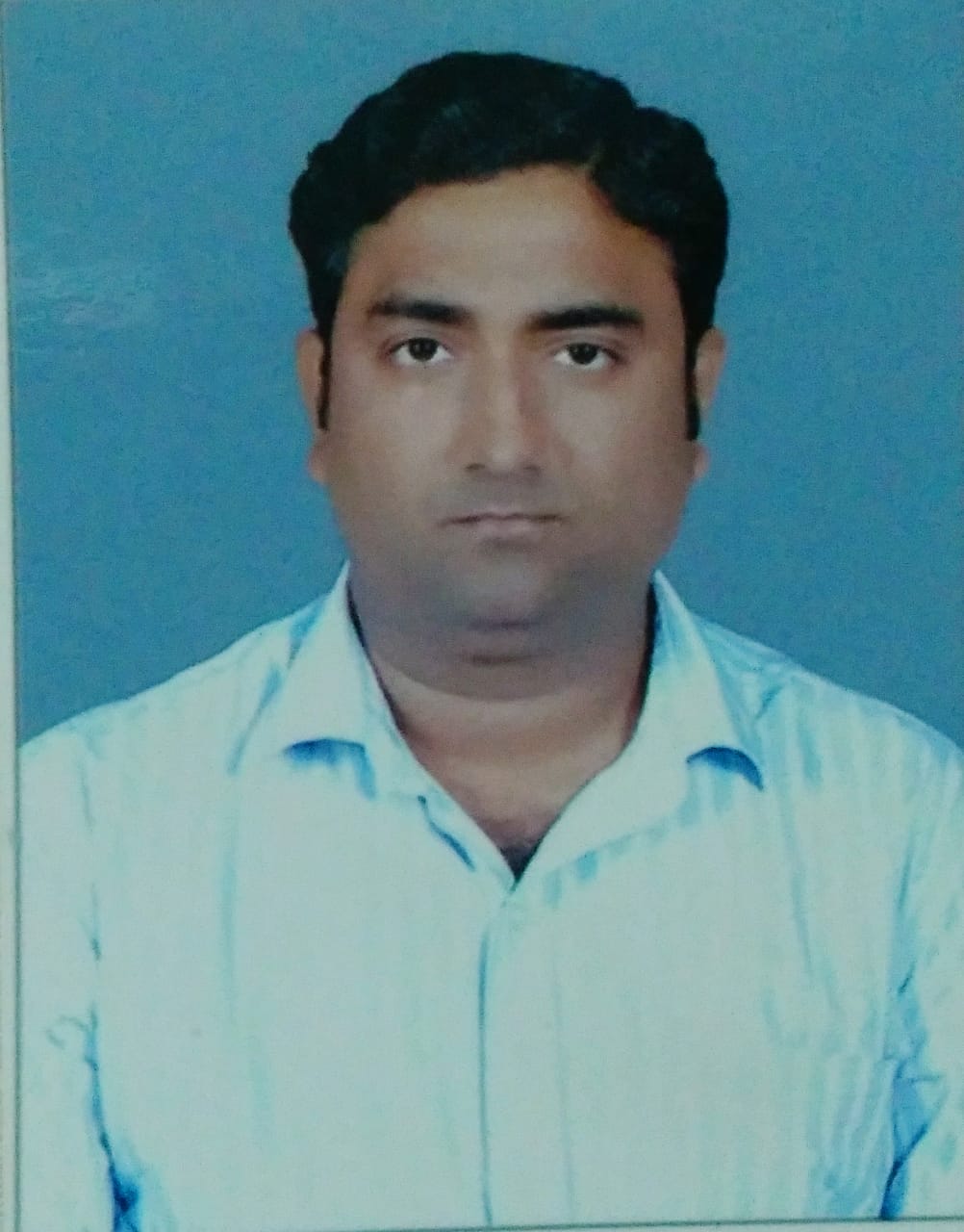
|
| 15 |
Mr. Pritendra Malakar pritmalakar@gmail.com |
Artificial Inteligence, Operating System, Software Testing | Assistant Professor |

|
DCA programme is a UGC approved 1 year full time Diploma programme of 32 credits divided in 2 semesters (15 credits and 17 credits in 1st and 2nd semester respectively). The DCA program at Dr. C. V. Raman University aims to make an interest into the students to study and use of computer and be familiar with information technology field. It provides platform to the student to find jobs in information technology fields.
The vision of DCA Programme is to provide a skill based computer program for learners of the ruler and tribal areas to stands themselves in the modern digital society.
The mission of this programme is to provide quality education to the learners through the combination of theory and practice. The aim is to improve the capability in application domain and to evolve the future computer engineers and computer scientist.
The objective of the programme is to develop high computer skills to the students. This program provides initial knowledge of computer that will support the learners to improve their skills in the field of information technology. The target is to provide overall knowledge of computer which includes both software and hardware. The learners also have the knowledge of both theoretical and practical aspect of computer.
The specific outcome of the programme is to achieve the well computer literates’ and educated learners who will be able to become a member of the growth of information technology industries. The aim of DCA programme is to produce next generation person with the knowledge and skills to get prizing careers into the world of information technology.
PO1.This program opens the opportunity for learners that come from any stream to learn a skill based subject
PO2.Learners can get initial knowledge of computer and can improve their skills. The students are also motivated for doing computer graduation proramme like DCA.
PO3.They can also work as computer operator or program developer in government or private sectors.
PO4.This program provides competitive environment for the learners which enable to stand and complete themselves.
BCA Programme is a UGC approved 3 years full time Graduate degree programme of 120 credits divided in 6 semesters (20 credits in each semester). The B.C.A program at Dr. C. V. Raman University aims to prepare students for choosing various verticals of information technology field. It provide various platform in the field of software industries, web industries and also in the academic areas.
The vision of BCA Programme is to skill based computer program for learners of the ruler and tribal areas to enhance their skills to establish themselves in society, so that every part of country will be able to use and participate in digital india.
The mission of this programme is to provide quality education to the learners through the combination of theory and practice. The aim is to improve the capability in application domain and to evolve computer engineers and computer scientist for the next generation.
The objective of the programme is to develop high computer skills to the students. This program provides the chance to gain overall knowledge of computer which includes both software and hardware. This program also develops the knowledge of programming and networking skills to the learners. The learners also have the knowledge of both theoretical and practical aspect of computer.
The specific outcome of the programme is to achieve the well computer literates’ and educated learners who will be able to become a member of the growth of information technology industries. The aim of BCA programme is to produce next generation person with the knowledge and skills to get prizing careers into the world of information technology.
PO1.This program opens the opportunity for learners that come from any stream to learn a skill based subject.
PO2.Learners can go for their master’s degree in computer application or computer science.
PO3.They can also work as computer operator or program developer in government or private sectors.
PO4.This program provides competitive environment for the learners which enable to stand and complete themselves.
PGDCA programme is a UGC approved 1 year full time Post Graduation Diploma programme of 32 credits divided in 2 semesters (14 credits and 18 credits in 1st and 2nd semester respectivelyThe main aim of this program is to provide enough knowledge of computer to the UG passed students so that they can be the part of information technology. Using this programme they can improve their skills with the use of smart features of computer.
The vision of PGDCA Programme is to provide computer education to learners of the ruler and tribal areas so that the skills are improved and they can stand themselves into a modern technological world.
The mission of this programme is to provide knowledge of computer with the combination of theory and practical. The aim of this course is to improve the capacities of learners in application domain and to evolve the future computer engineers and computer scientist.
The objective of the programme is to develop computer skills to the students. This programme aimed towards building prospective career in the field of computer application. The programme is designed with the objective to provide knowledge and skills in the various aspects of computer application and core programming.
The specific outcome of the programme is to achieve the well computer literates’ and educated learners who will be able to become a member of the growth of information technology industries. Any learner can do so many things with the respect of their career in the field of computer science. The knowledge of computer also helps to qualify competitive exams to make their career in post like computer operator
PO1.This program opens the opportunity for learners that come from any stream to learn a skill based subject. Learners can get initial knowledge of computer and can improve their skills.
PO2.They can also work as computer operator or program developer in government or private sectors.
PO3.This program provides competitive environment for the learners which enable to stand and complete themselves.
PO4.The learners can also be able to prepare applications using computer language,
PGDCA programme is a UGC approved 1 year full time Post Graduation Diploma programme of 28 credits divided in 2 semesters (14 credits and 14 credits in 1st and 2nd semester respectivelyThe main aim of this program is to provide enough knowledge of computer to the UG passed students so that they can be the part of information technology. Using this programme they can improve their skills with the use of smart features of computer.
The vision of PGDCA Programme is to provide computer education to learners of the ruler and tribal areas so that the skills are improved and they can stand themselves into a modern technological world.
The mission of this programme is to provide knowledge of computer with the combination of theory and practical. The aim of this course is to improve the capacities of learners in application domain and to evolve the future computer engineers and computer scientist.
The objective of the programme is to develop computer skills to the students. This programme aimed towards building prospective career in the field of computer application. The programme is designed with the objective to provide knowledge and skills in the various aspects of computer application and core programming.
The specific outcome of the programme is to achieve the well computer literates’ and educated learners who will be able to become a member of the growth of information technology industries. Any learner can do so many things with the respect of their career in the field of computer science. The knowledge of computer also helps to qualify competitive exams to make their career in post like computer operator
This program opens the opportunity for learners that come from any stream to learn a skill based subject. Learners can get initial knowledge of computer and can improve their skills. They can also work as computer operator or program developer in government or private sectors. This program provides competitive environment for the learners which enable to stand and complete themselves.The learners can also be able to prepare applications using computer language.
M.Sc. (IT) programme is an UGC approved 2 years full time Post Graduate degree programme of 80 credits divided in 4 semesters. The M.Sc.(IT) program at Dr. C. V. Raman University aims to prepare students for choosing various verticals of information technology area. It provide various platform in the field of software industries, web industries and also in the academic areas.
The vision of M.Sc. IT Programme is to provide skill based computer program for learners of the ruler and tribal areas to enhance their skills to establish themselves in society and Enables learners to work efficiently in a dynamic technology era, so that every part of country will be able to use and participate in digital india.
The mission of this programme is to provide innovative program, based on a number of core and advance courses of IT. After graduation, the learner will understand the impact of technology change and finds the advance use of IT in different area. The learner will learned the advance trends in computers that enable them to build a leader.The aim is to improve the capability in application domain and to evolve computer engineers and computer scientist for the next generation.
The objective is to provide computer education added to core and advance subject of information technology with innovative learning facilities to the learners of ruler and tribal backgrounds. We provide innovative computer knowledge to the learners which enhance the personality and help to develop professionals in the field of IT.This program also develops the knowledge of programming and networking skills to the learners. The learners also have the knowledge of both theoretical and practical aspect of computer.
The specific outcome of the programme is to achieve the well computer literates’ and educated learners who will be able to become a member of the growth of information technology industries. Development of computer based skills to empower the personality learners. Improve the knowledge of core and advance subjects including computer architecture, operating system, computer network and advance programming etc. To provide knowledge of different programming languages, this helps to develop software professional. Also provide a platform for learners through which they can move themselves into the higher education in field of Information technology.
PO1.This programme gives the opportunity to work in IT industry for development of software and software testing.
PO2.It also able to learners for finding various jobs like database administrators, software professionals, system analyst etc. in government as well as private sector.
PO3.This programme provides competitive environment for the learners which enable to stand and compete themselves.
PO4.This programme provide a platform to move learners in computer research field.
Ph. D. (CS) Programme is a UGC approved minimum duration 3 years including course work year and maximum 6 years research programme of 18 credits. The Ph. D. (CS) programme at Dr. C. V. Raman University aims to prepare and motivates to scholars to research work in the various field which outcomes will be helpful for society. It provides various opportunities to research work the field of industries as well as academics areas
The vision of Ph. D. (CS) Programme is a research based programme for scholars. They can enhance their knowledge and existing research into new research or ideas which will helpful for society and country. So that every part of country will be able to take benefit of new ideas or knowledge.
The mission of this programme is to provide quality based research to the scholars through the combination of theory as well as practical. The aim of this programme is to improve the research capability in specific domain and provides the benefit to the each and every person of society
The structure of the Ph. D. (CS) course is designed to produce post graduates as well as M. Phil. with rigorous research and analytical skills, who are exceptionally well-equipped to go onto post doctoral research , or employment in industry and the public service.
The Ph. D. (CS) course provides:
Skills to enable the student to critically examine the background literature relevant to their specific research area.
An environment that encourages the student’s originality and creativity in their research.
A period of sustained in-depth study of a specific topic.
Publishing the results of their research in high-profile scientific journals, through constructive feedback of written work and oral presentations.
PSO1.This programme is able to demonstrate originality in the application of knowledge, together with a practical understanding of how research and enquiry are used to create and interpret knowledge in their field.
PSO2.This programme is an achievement and a significant for students piece of research.
PSO3.This programme is able to act autonomously in the planning and implementation of research.
PSO4.This programme have gained oral presentation and scientific writing skills.
PO1.This programme has a thorough knowledge of the literature and a comprehensive understanding of scientific methods and techniques applicable to their own research.
PO2.This programme develops the ability to critically evaluate current research and research techniques and methodologies.
PO3.This programme opens the opportunity for the post graduation students in respective stream to start research work in the interesting area which will be helpful for society.
PO4.This programme creates self-direction and originality in tackling and solving problems.
Ph. D. (IT) Programme is a UGC approved minimum duration 3 years including course work year and maximum 6 years research programme of 18 credits. The Ph. D. (CS) programme at Dr. C. V. Raman University aims to prepare and motivates to scholars to research work in the various field which outcomes will be helpful for society. It provides various opportunities to research work the field of industries as well as academics areas
The vision of Ph. D. (IT) Programme is a research based programme for scholars. They can enhance their knowledge and existing research into new research or ideas which will helpful for society and country. So that every part of country will be able to take benefit of new ideas or knowledge.
The mission of this programme is to provide quality based research to the scholars through the combination of theory as well as practical. The aim of this programme is to improve the research capability in specific domain and provides the benefit to the each and every person of society
The structure of the Ph. D. (IT) course is designed to produce post graduates as well as M. Phil. with rigorous research and analytical skills, who are exceptionally well-equipped to go onto post doctoral research , or employment in industry and the public service.
The Ph. D. (IT) course provides:
Skills to enable the student to critically examine the background literature relevant to their specific research area.
An environment that encourages the student’s originality and creativity in their research.
A period of sustained in-depth study of a specific topic.
Publishing the results of their research in high-profile scientific journals, through constructive feedback of written work and oral presentations.
PSO1.This programme is able to demonstrate originality in the application of knowledge, together with a practical understanding of how research and enquiry are used to create and interpret knowledge in their field.
PSO2.This programme is an achievement and a significant for students piece of research.
PSO3.This programme is able to act autonomously in the planning and implementation of research.
PSO4.This programme have gained oral presentation and scientific writing skills.
PO1.This programme has a thorough knowledge of the literature and a comprehensive understanding of scientific methods and techniques applicable to their own research.
PO2.This programme develops the ability to critically evaluate current research and research techniques and methodologies.
PO3.This programme opens the opportunity for the post graduation students in respective stream to start research work in the interesting area which will be helpful for society.
PO4.This programme creates self-direction and originality in tackling and solving problems.
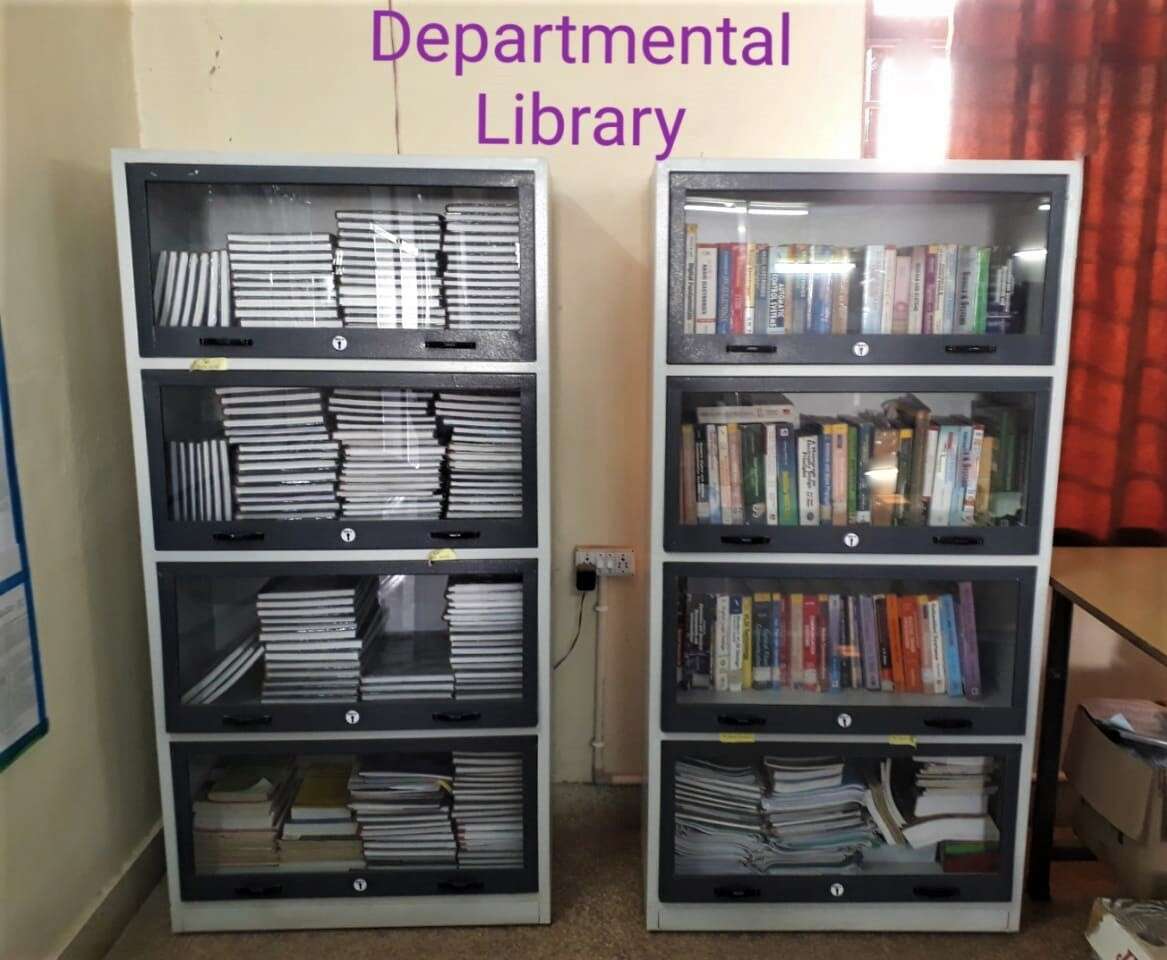
The Department has a well-stocked library with 500 books on a variety of topics in the Computer Science arena. Besides books, the library possesses tools and technology CDs, journals, project and seminar reports, lab manuals and question banks. The collection is strong in all aspects, with special strengths in C, C++ programming, Python, Java Programming, FoxPro programming, Microsoft visual studio, C#.net, VB.net, Asp.net, Software Engineering, Automata Theory, System Programming, Computer Architecture and Organization, Data Structures, Microprocessors, Database Management System, Java Programming, Computer Networking, Data Security, Artificial Intelligence, Biometric Security, etc. and also books on Digital Electronics, Humanities, Management and Aptitude, etc.. Library has a reading room with newspapers, technical journals and magazines.
Departmental Computer Labs consist of Licensed Software under Microsoft campus agreement and MATLAB with Simulink Performance Tools like Image Processing Tool Box, Neural Network Tool Box, Wavelet Transforms Toolbox, Filter Design Toolbox, and Communication Toolbox.
The lab is installed with all important editors like CodeBlock, Dev C++ provides a dual operating system environment where the students can learn to execute C and C++ programs in all types of environments.
The Lab is dedicated for Database related practicals. High configuration computer systems installed with softwares like Oracle Server, MySQL are used by the students to execute their Database related projects and assignments.
The students receive hands on practical experience in the field of System Administration, System Engineering, Hacking and Security. Red Hat Linux Administration is the key practice in this lab.
The lab is dedicated for the students to develop their Minor and Major projects. All project related software are installed in this lab to fulfil the requirements of development.
The lab is installed with all important editors like Microsoft visual studio provides an environment where the students can learn to write execute Asp.net,VB.net, C#.net programs in all types of environments.
IoT-LAB provides full control of network nodes and direct access to the gateways to which nodes are connected, allowing researchers to monitor nodes energy consumption and network-related metrics, e.g. end-to-end delay, throughput or overhead. The facility offers quick experiments deployment, along with easy evaluation, results collection and analysis. Defining complementary testbeds with different node types, topologies and environments allows for coverage of a wide range of real-life use-cases.
The lab Installed with MATLAB software, provides solution to data scientists, automatic control simulation etc. It provides multi paradigm numerical computing environment for solving computer based numerical problems.
| S.No. | Name | Title | National/ International | Conference/Journal | Year |
|---|---|---|---|---|---|
| 1 | JITENDRA KUMAR GUPTA | A FRAMEWORK FOR EFFECTIVE E-COMMERCE SOLUTION SYSTEM | INTERNATIONAL | Journal | 2015 |
| 2 | SURAJ KESARI | A MODEL OF ANALYSIS VIRTUALIZATION OF MULTI CLOUDE DATA EXCHANGE PRIVACY AND SECURITY | INTERNATIONAL | Journal | 2015 |
| 3 | SURAJ KESARI | A MODEL TO DETECT DYNEMIC VIRTUAL EXECUTION ON UNTRUSTED MACHINE | INTERNATIONAL | Journal | 2015 |
| 4 | SURAJ KESARI | MODEL TO CREATE VIRTUALIZATION OF CLOUDE SERVER USING HYPERVISOR BASED TECHNOLOGY | INTERNATIONAL | Journal | 2015 |
| 5 | SURAJ KESARI | EFFICIENT ALGORITHM TO DETECT E-MAIL DATE/TIME SPOOFING TECHNIQUE USING PHISHING ATTACKS | INTERNATIONAL | Journal | 2015 |
| 6 | SURAJ KESARI | A MODEL OF ADVANCE TELICOMMUNICATION TECHNIQUE FOR 5G WIRELESS NETWORK IPS | INTERNATIONAL | Journal | 2015 |
| 7 | SURAJ KESARI | DEVELOPING A MODEL TO DETECT NETWORK ATTECTS USING BIOMETRICS TECHNIQUE | INTERNATIONAL | Journal | 2015 |
| 8 | SURAJ KESARI | DEFENDING NETWORK IDENTIFICATION FOR BROWSERS AGAINST WEB SPOOFING ATTACK TECHNIQUE | INTERNATIONAL | Journal | 2015 |
| 9 | SURAJ KESARI | A MODEL FOR IDENTIFING PHISHING E-MAIL BASED ON STRUCTURAL PROPERTY | INTERNATIONAL | Journal | 2013 |
| 10 | SURAJ KESARI | KNOWLEDGE PETTERN IN CLINICAL DATA THROUGH DATA MINING: A REVIEW ON CANCER DISEASE PREDICTION | INTERNATIONAL | Journal | 2013 |
| 11 | SURAJ KESARI | SOFT COMPUTING BASED CLASSIFICATION TECHNIQUE USING KDD99 DATA SET FOR INTRUSION DETECTION SYSTEM | INTERNATIONAL | Journal | 2013 |
| 12 | SURAJ KESARI | GESTURE BASED COMPUTING FOR MODERN COMPUTING | National | Journal | 2012 |
| 13 | SURAJ KESARI | A STUDY OF E MAIL DATE ATTACKS IN NETWORK SECURITY | INTERNATIONAL | Journal | 2015 |
| 14 | AYUSH KUMAR AGRAWAL |
Indian Weather Forecasting using ANFIS and ARIMA based Interval Type-2 Fuzzy Logic Model |
INTERNATIONAL | Journal | 2014 |
| 15 | AYUSH KUMAR AGRAWAL |
A Review on Fuzzy Mining Association Rule Techniques |
INTERNATIONAL | Journal | 2016 |
| 16 | AYUSH KUMAR AGRAWAL |
A Novel Approach for Reducing the Candidate Item Sets and Large Item Sets by Fuzzy Mining Association Rule |
INTERNATIONAL | Journal | 2016 |
| 17 | AYUSH KUMAR AGRAWAL |
ERP of Employee Management System Using MVC Architecture with Strong Session Management |
INTERNATIONAL | Journal | 2016 |
| 18 | AYUSH KUMAR AGRAWAL | Application of K-means Clustering Technique for Analysis of Students Academic Performance in School Education | INTERNATIONAL | Journal | 2018 |
| 19 | DR. VINEET AWASTHI | Stock Index Ranking and Performance Evaluation of Shanghai Stock exchange (SSE) Using AHP and TOPSIS Method | International | Journal | 2019 |
| 20 | DR. VINEET AWASTHI | An Intigrated Three-tier Architecture of AHP-GP for stock portfolio management | International | Journal | 2018 |
| 21 | DR. VINEET AWASTHI | Expert Portfolio System using Integrated MCDM-GP Approach | International | Journal | 2017 |
| 22 | DR. VINEET AWASTHI | Application of TOPSIS method for Stock Index Ranking | International | Journal | 2016 |
| 23 | DR. VINEET AWASTHI | AHP Method Applied for Portfolio Ranking of Various Indices and Its Year Wise Comparison | International | Journal | 2015 |
| 24 | DR. VINEET AWASTHI | Comparative Analysis of AHP and Its Integrated techniques Aoolied to Stock Index ranking | International | Conference | 2016 |
| 25 | Rahul kumar pandey | Agile software projecr management methodology | National | Conference | 2013 |
| 26 | Rahul kumar pandey | Data Quality in Data warehouse:problems & solution | INTERNATIONAL | Journal | 2014 |
| 27 | Rahul kumar pandey | Class cohesion metrics in object oriented system | INTERNATIONAL | Conference | 2014 |
| 28 | Rahul kumar pandey | Measuring cohession | INTERNATIONAL | Conference | 2014 |
| 29 | Rahul kumar pandey | WiFi: A Path for future Direction | INTERNATIONAL | Conference | 2015 |
| 30 | Rahul kumar pandey | Improving class cohesion | INTERNATIONAL | Conference | 2015 |
| 31 | Rahul kumar pandey | Real Time Implementation Of Component based software Eng. | National | Conference | 2015 |
| 32 | Rahul kumar pandey | Mobile Learning Technology:Prospect & challenges | National | Conference | 2016 |
| 33 | Rahul kumar pandey | Measuring students engagement during lecture for comparison across multiple domain | National | Conference | 2019 |
| 34 | Rahul kumar pandey | Attentiveness measure in classroom Environment using face detection | INTERNATIONAL | Conference | 2020 |
| 35 | Vivekanand Verma | IRIS BASED CRYPTOSYSTEMS FOR SECURING VOIP | INTERNATIONAL | JOURNAL | 2014 |
| 36 | V ANURAG RAO | ENHANCED ACADEMIC PERFORMANCE EVALUATION TECHNIQUE USING FUZZY SYSTEM | INTERNATIONAL | JOURNAL | 2016 |
| 37 | V ANURAG RAO | EDUCATIONAL DATA ANALYSIS USING DATA MINING TECHNIQUES | INTERNATIONAL | Conference | 2019 |
| 38 | V ANURAG RAO | National | Seminar | 2019 | |
| 39 | Pritendra Kumar Malakar | Sentiment Classification of Hindi Language using Natural Language Processing Techniques | INTERNATIONAL | Conference | 2015 |
| 40 | Pritendra Kumar Malakar | Hybrid Approach Based POS Tagger for Hindi Language | INTERNATIONAL | Conference | 2015 |
| 41 | Pritendra Kumar Malakar | A Computational Model of Sentiment Analysis for Hindi Text | INTERNATIONAL | Review of Research | 2016 |
| 42 | Pritendra Kumar Malakar | Rule based Hindi Noun Phrase Identifier | INTERNATIONAL | Indian Stream Research journal | 2016 |
| 43 | Pritendra Kumar Malakar | A Rule Based Computational System for Sentiment Analysis of Hindi Idioms | INTERNATIONAL | Review of Research | 2019 |
| S.No. | Name | Topic | Date | Place |
|---|---|---|---|---|
| 1 | AYUSH KUMAR AGRAWAL | EMERGING ISSUES IN BUSINESS, TECHNOLOGY AND APPLIED SCIENCE | 22 & 23 DECEMBER 2018 | BANGKOK, THAILAND |
| 2 | INNOVATIVE RESEARCH IN SCIENCE, MANAGEMENT AND TECHNOLOGY 2018 | 4 & 5 AUG 2018 | BILASPUR UNIVERSITY | |
| 3 | INNOVATIVE RESEARCH IN SCIENCE, MANAGEMENT AND TECHNOLOGY 2020 | 4 & 5 JAN 2020 | BILASPUR UNIVERSITY | |
| 4 | RECENT TRENDS AND DEVELOPMENT IN SCIENCE FOR HUMIDITY | 13-14 JANUARY 2019 | GOVT. E. R. RAO P.G. SCIENCE COLLEGE ,BILASPUR | |
| 5 | VINEET KUMAR AWASTHI | INTELLIGENT COMPUTING AND INFORMATION SYSTEM | 3 & 4 OCT 2009 | D P VIPRA COLLEGE |
| 6 | INNOVATION RESEARCH IN SCIENCE, MANAGEMENT AND TECHNOLOGY | 29 & 30-MAR-2015 | BILASPUR UNIVERSITY | |
| 7 | ADVANCED COMPUTING, NETWORKING AND INFORMATICS | 22 TO 24 SEP-2016 | NIT ROURKELA, ODISA | |
| 8 | MORDEN TECHNOLOGY AND MANAGEMENT INTITUTE 2017 | 16 & 17 DEC 2017 | DUBAI | |
| 9 | INNOVATIVE RESEARCH IN SCIENCE, MANAGEMENT AND TECHNOLOGY | 4 & 5 AUG 2018 | BILASPUR UNIVERSITY | |
| 10 | EMERGING ISSUES IN BUSINESS, TECHNOLOGY AND APPLIED SCIENCE | 22 & 23 2018 | BANGKOK, THAILAND | |
| 18 | Rahul Pandey | WIFI:A PATH FOR FUTURE DIRECTION | 06-07- JUNE 2015 | ICETR 2015 |
| 19 | future and challenges of computational and integrated sciences | 7-8 nov 2014 | hans raj mahila maha vidyalaya ,jalandhar panjab | |
| 20 | national conference on recent trends in mechanical,electrical, electronics, civil,computer science and IT | 21-22 nov 2015 | jawahar lal nehru university, new delhi | |
| 21 | vimarsh national conference | 12-13 sep 2013 | Chouksey Engineering College,Bilaspur(C.G.), India | |
| 22 | national conference on emerging trends in engineering & science | 9-10nov 2013 | gurukul university , haridwar u.k. india | |
| 23 | international multi track conference on science,engineering & technical innovations | 3-4 june 2014 | CT institute of engineering, jalandhar,panjab | |
| 24 | international Conferene on innovative trends and practices in IT and Management | 5-6 jan 2015 | ST. Aloysius college , jabalpur M.P. | |
| 25 | innovetive & Emerging Trends In Engneering And Technology | 1 and 2 aprel 2016 | Columbia Institute of engneering and Technology | |
| 26 | RTI as a tool for governance : Indian perspective | 31-1 Feb 2014 | ST. Aloysius college , jabalpur M.P. | |
| 27 | ICT: Current Prespective | 12-13 April 2014 | IETE Allahabad Centre | |
| 28 | Measuring students engagement during lecture for comparision across multi. Domane | 22-23 Feb 2019 | Dr. C. V. Raman University kota | |
| 29 | Attentiveness Measure in class room emvironment using face detection | 4-5Jan 2020 | ABVU Bilaspur, ICRSMT | |
| 30 | Ayaz Ahamad | innovetive & Emerging Trends In Engneering And Technology | 1 and 2 aprel 2016 | Columbia Institute of engneering and Technology |
| 31 | SURAJ KESARI | EMPOWERING ACADEMIC SKILLS & RESEARCH | 08 to 13th,2018 | Dr. C. V. Raman University, Kota (C.G.) |
| 32 | Pritendra Kumar Malakar | Advances in Computer Science and Information Technology (NCACSIT) | 22-23 Feb, 2019 | Dr. C. V. Raman University, Kota (C.G.) |
| 33 | Advances in Computing (NWAC-2014) | 13-18 Feb, 2014 | North Maharashtra University, Jalgaon, Maharashtra | |
| 34 | हिंदी के बहुप्रयुक्त रूप: चुनौतियाँ एवं संभावनाएँ | 24-26 August, 2017 | PSSOU, Bilaspur (C.G.) | |
| 35 | Regional Symposuim on Natural Language Processing | 21-22 March, 2015 | IIT-BHU, Varanasi (U.P.) | |
| 36 | SCONLI-12 | 27-28 January, 2018 | MGAHV Wardha (Maharashtra) | |
| 37 | 10th World Hindi Conference | 10-12 September, 2015 | Bhopal (M.P.) | |
| 38 | Creation of Tagged Database for Hindi Complex Sentences | 12-17 February, 2018 | MGAHV Wardha (Maharashtra) | |
| 39 | Strengthening Basic English Language Skill through English theatre expierience | 31 Aug-09 Sep, 2018 | MGAHV Wardha (Maharashtra) | |
| 40 | Emerging Research in Computer and Software Engineering | 21 November, 2015 | UICSA, Rani Durgavati University, Jabalpur (MP) | |
| 41 | INNOVATION AND RESEARCH IN SCIENCE, MANAGEMENT AND TECHNOLOGY | 29-30 March, 2015 | Bilaspur University, Bilaspur (CG) | |
| 42 | Emerging Techniques in Computer Science | 22-23 November, 2011 | Kalyan P.G. College, Bhilai Nagar (CG) | |
| 43 | Hindi Blogging and Social Media | 20-21 September, 2013 | MGAHV Wardha (Maharashtra) | |
| 44 | प्राकृतिक भाषा संसाधन (NLP) राष्ट्रीय कार्यशाला | 15-19 January, 2015 | MGAHV Wardha (Maharashtra) | |
| 45 | Modern Perspective of NLP for Hindi and Other Indian Languages | 17-19 August, 2016 | MGAHV Wardha (Maharashtra) | |
| 46 | Challenges in Promoting Language Technology in Hindi | 07-09 April, 2014 | MGAHV Wardha (Maharashtra) | |
| 47 | Translation Research: A Methodology for investing cognitive process in translation and machine translation post-editing | 02-05 December, 2013 | MGAHV Wardha (Maharashtra) | |
| 48 | शब्दकोश निर्माण प्रशिक्षण कार्यशाला | 04-07 September, 2017 | MGAHV Wardha (Maharashtra) |
| S.No. | Name | Name of Awards | Organization/Venue | Date |
|---|---|---|---|---|
| 1. | Pritendra Malakar | National Fellowship | UGC Delhi | |
| 2. | Pritendra Malakar | Gold Medal | MGAHV Wardha | |
| 3. | Pritendra Malakar | Gold Medal | MGAHV Wardha | |
| 4. | Pritendra Malakar | Meritorius Student | CEC Bilaspur |
| S.No. | Title of the programme | Programm type | Duration | Organising Department | Date |
|---|---|---|---|---|---|
| 1 | C++ programming Language | Guest Lecture | 1 Day | Dept. of IT&CS , Dr. C.V. Raman University | 04-Mar-14 |
| 2 | Java programming Language | Guest Lecture | 1 Day | Dept. of IT&CS , Dr. C.V. Raman University | 11-Apr-14 |
| 3 | Cloud Computing | Workshop | 2 Day | Dept. of IT&CS , Dr. C.V. Raman University | 14-15 April 2014 |
| 4 | C Programming Language | Guest Lecture | 1 Day | Dept. of IT&CS , Dr. C.V. Raman University | 10-10-14 |
| 5 | Android System | Workshop | 2 Day | Dept. of IT&CS , Dr. C.V. Raman University | 14-15 Nov 2014 |
| 6 | Java programming Language | Guest Lecture | 1 Day | Dept. of IT&CS , Dr. C.V. Raman University | 11-Nov-14 |
| 7 | Matlab Programming | Workshop | 1 Week | Dept. of IT&CS , Dr. C.V. Raman University | 09-15 Feb 2015 |
| 8 | Internet and Web Technology | Guest Lecture | 1 Day | Dept. of IT&CS , Dr. C.V. Raman University | 17-Mar-15 |
| 9 | Hardware and Networking Concept | Workshop | 1 Day | Dept. of IT&CS , Dr. C.V. Raman University | 23-Mar-15 |
| 10 | RDBMS Programming with ORACLE | Seminar | 1 Day | Dept. of IT&CS , Dr. C.V. Raman University | 06-Apr-15 |
| 11 | System Testing Concepts | Workshop | 1 Day | Dept. of IT&CS , Dr. C.V. Raman University | 08-Apr-15 |
| 12 | Multimedia and Animation Tools | Seminar | 1 Day | Dept. of IT&CS , Dr. C.V. Raman University | 10-Apr-15 |
| 13 | Software Engineering | Guest Lecture | 1 Day | Dept. of IT&CS , Dr. C.V. Raman University | 13-Apr-15 |
| 14 | Prediction and Classification Techniques | Guest Lecture | 1 Day | Dept. of IT&CS , Dr. C.V. Raman University | 17-Apr-15 |
| 15 | C Programming Language | Guest Lecture | 1 Day | Dept. of IT&CS , Dr. C.V. Raman University | 14-Sep-15 |
| 16 | CISCO ROUTINg/Switching | Workshop | 1 Day | Dept. of IT&CS , Dr. C.V. Raman University | 05-Nov-15 |
| 17 | SAP and ERP | Seminar | 1 Day | Dept. of IT&CS , Dr. C.V. Raman University | 16-Feb-16 |
| 18 | Techno Thrust (Win 1 and 3 Prize) | Model Presentation | 1 Day | Dr C V R U | 29-Feb-16 |
| 19 | Andoid Application Development | Workshop | 2 Day | Dept. of IT&CS , Dr. C.V. Raman University | 19-Sep-16 |
| 20 | Microsoft Faculty Empowerment Program | Workshop | 2 Day | Dept. of IT&CS , Dr. C.V. Raman University | 29-30Dec 2017 |
| 21 | Programming on IOT | Workshop | 5 Day | Dept. of IT&CS , Dr. C.V. Raman University | 19-23 March 2018 |
| 22 | Experiential Workshop on Data Analytics Using R | Workshop | 2 Day | Dept. of IT&CS , Dr. C.V. Raman University | 27-28 Juily 2018 |
| 23 | National Conference on Advances in CS and IT | Conference | 2 Day | Dept. of IT&CS , Dr. C.V. Raman University | 22-23 Feb 2019 |
| S.No. | Name of Programme | Duration/Year | Organizing Secretary | Program Type |
|---|---|---|---|---|
| 1 | AIU Program | 2019 | University | National Level Youth Festival |
| 2 | AIU Program | 2018 | University | National Level Youth Festival |
| 3 | AIU Program | 2017 | University | National Level Youth Festival |
| 4 | AIU Program | 2016 | University | National Level Youth Festival |
| 5 | AIU Program | 2015 | University | National Level Youth Festival |
| 6 | Kabbadi | 2015 | University | Tournment |
| 7 | Kabbadi | 2015 | University | National Level Tournment |
| 8 | Kho Kho | 2015 | University | National Level Tournment |
| 9 | Blood Donation | 2014 | Department | Social Work |
| 10 | AIU Program | 2014 | University | National Level Youth Festival |
| 11 | AIU Program | 2013 | University | National Level Youth Festival |
CVRUCG © 2024 | Design & Developed By AISECT Web Center All rights reserved.